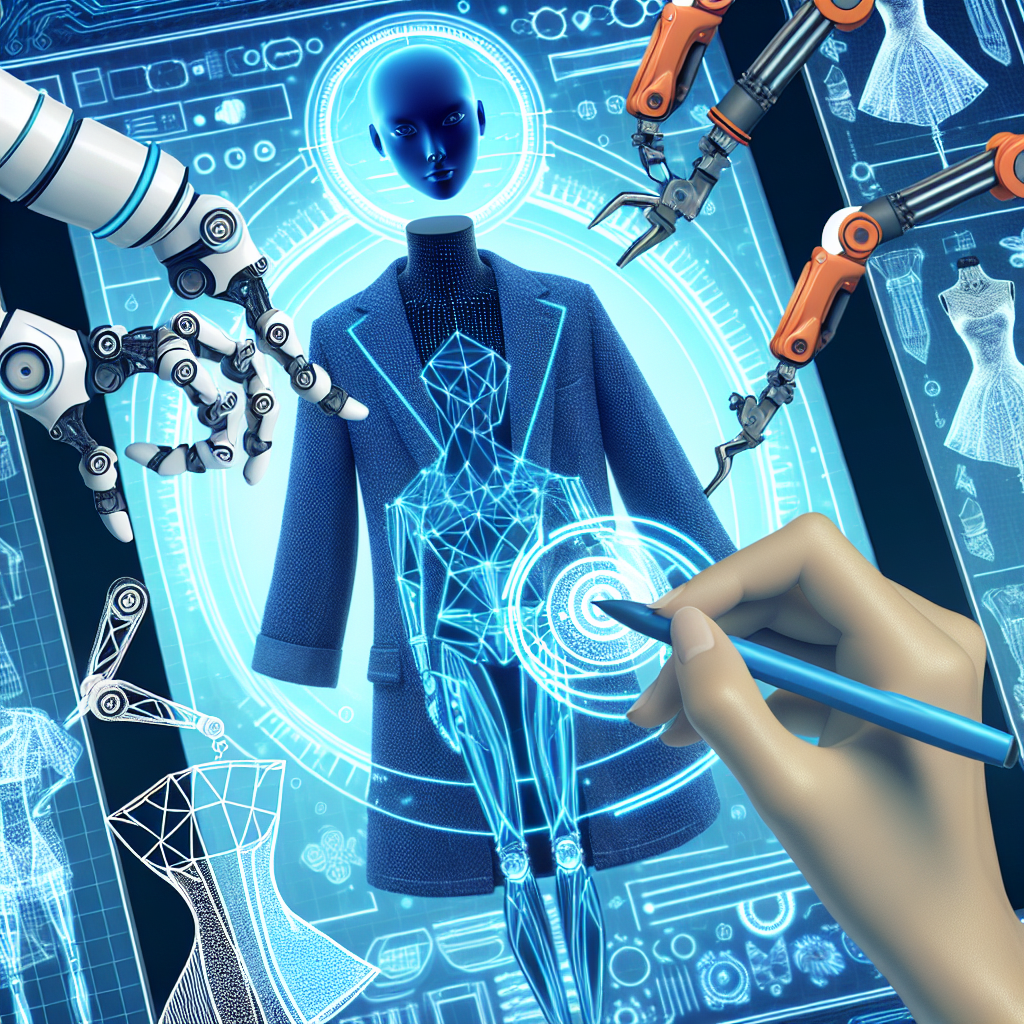The fashion industry has always been at the forefront of innovation and creativity, constantly pushing boundaries and exploring new technologies. In recent years, artificial intelligence (AI) has emerged as a game-changer in the fashion industry, revolutionizing the way brands design, create, and market their products. From virtual fitting rooms to personalized shopping experiences, AI is transforming every aspect of the fashion industry.
The Future of AI in Fashion Industry
AI has the potential to disrupt the fashion industry in numerous ways, from predicting trends to improving supply chain efficiency. Here are some key ways in which AI is shaping the future of the fashion industry:
1. Personalized shopping experiences: AI-powered algorithms can analyze customer data and preferences to create personalized shopping experiences. By understanding individual preferences, brands can recommend products that are tailored to each customer’s unique style, size, and budget.
2. Virtual fitting rooms: AI technology is enabling brands to offer virtual fitting rooms, allowing customers to try on clothes virtually before making a purchase. This not only enhances the shopping experience but also reduces returns and improves customer satisfaction.
3. Trend forecasting: AI can analyze vast amounts of data from social media, online searches, and sales trends to predict future fashion trends. By leveraging AI-powered algorithms, brands can stay ahead of the curve and create products that resonate with consumers.
4. Supply chain optimization: AI can streamline the supply chain by optimizing inventory management, forecasting demand, and improving production efficiency. By automating processes and reducing inefficiencies, brands can reduce costs and speed up time-to-market.
5. Sustainable fashion: AI can help brands make more sustainable choices by optimizing production processes, reducing waste, and minimizing environmental impact. By using AI to analyze data and make informed decisions, brands can create more sustainable and ethical products.
6. Influencer marketing: AI is transforming influencer marketing by identifying the most relevant influencers for a brand and predicting the impact of influencer collaborations. By leveraging AI-powered algorithms, brands can maximize the impact of their influencer marketing campaigns.
7. Enhanced customer service: AI-powered chatbots and virtual assistants are revolutionizing customer service in the fashion industry. By providing instant support and personalized recommendations, brands can enhance the customer experience and build loyalty.
The future of AI in the fashion industry is bright, with endless possibilities for innovation and growth. As AI technology continues to evolve, we can expect to see even more exciting developments in the coming years.
FAQs
1. How is AI being used in fashion design?
AI is being used in fashion design to streamline the design process, enhance creativity, and optimize product development. By analyzing trends, predicting consumer preferences, and simulating designs, AI is revolutionizing the way brands create and produce fashion products.
2. How can AI improve the shopping experience for customers?
AI can improve the shopping experience for customers by providing personalized recommendations, virtual fitting rooms, and instant support. By analyzing customer data and preferences, brands can create tailored shopping experiences that meet the needs and expectations of individual customers.
3. How is AI being used to predict fashion trends?
AI is being used to predict fashion trends by analyzing vast amounts of data from social media, online searches, and sales trends. By leveraging AI-powered algorithms, brands can forecast future trends and create products that resonate with consumers.
4. How can AI help brands make more sustainable choices?
AI can help brands make more sustainable choices by optimizing production processes, reducing waste, and minimizing environmental impact. By analyzing data and making informed decisions, brands can create more sustainable and ethical products.
5. What are some examples of AI-powered technologies in the fashion industry?
Some examples of AI-powered technologies in the fashion industry include virtual fitting rooms, personalized recommendations, trend forecasting algorithms, and chatbots for customer service. These technologies are transforming the way brands design, create, and market their products.
In conclusion, the future of AI in the fashion industry is promising, with endless opportunities for innovation and growth. From personalized shopping experiences to sustainable fashion choices, AI is revolutionizing every aspect of the fashion industry. As brands continue to embrace AI technology, we can expect to see even more exciting developments in the years to come.

